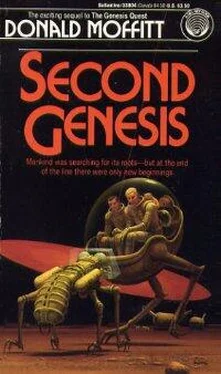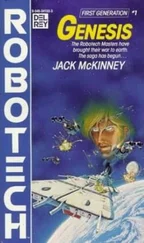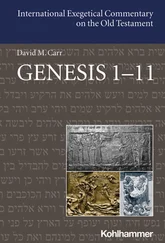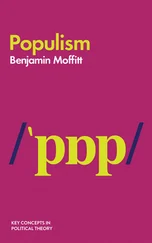“The magnetic field was much more powerful than it ought to have been,” Jao said, “and it was growing. There was twice as much mass rotating around the galactic center as there should have been—the equivalent of two hundred million solar masses. It should have been gobbled up by the black hole, swept out by core explosions during the quasar epoch of the universe. But some process is replenishing it—maybe from a universe on the other side of the plenum.”
The Milky Way spun all the way up like a coin and presented its face. Now it could be seen as a great swirl of stars with an incandescent center. Jao’s holographic head presided over it like some raffish deity.
He had their attention now. The crowd had stopped fidgeting, and the background buzz of conversation had died down.
“We set up a long-term computer model at that time and started feeding data into it. The program was authorized to change its suppositions if data didn’t fit. We left the model running and plunged into the galactic core. All the senses of the tree were plugged into it. It saw, it listened, it sensed radiation and magnetism and gravitation, and it drew maps covering whole slices of the galaxy as we passed through.”
Shaded areas appeared briefly in the hologram to show the path swept by Yggdrasil’s spiraling orbit.
“Since our brush with the black hole, the computer has been processing sixty thousand years’ worth of real-time observational data. It’s a large enough sample of the history of the galaxy to show us how the charged arms grow. And to project into the past and future with the help of data from other sources. I’ve been awake for the last twenty hours polishing the results. And there’s no possible doubt…”
Now Jao’s theoretical plan of eight revolving spokes could be seen, superimposed in coruscating orange on a galaxy that was rotating at half their speed. They swept the spiral arms of stars like great flexible pinions, their ends trailing. They were growing outward all the time, becoming more vivid as they gained in power. It was very graphic.
The sun appeared as a yellow dot in the spiral arms of the galaxy, between spokes. And now one of the orange spokes brushed it.
“That happened three hundred million years ago,” Jao said. “Half of all animal families on earth were wiped out. In the oceans, ninety percent of species disappeared.”
Pictures floated in the holo, superimposed on the spinning wheel. They showed queer, scaly, flipper-limbed creatures with flat heads and big jaws, armored swimmers, many-legged bottom crawlers. They had come, Bram supposed, from Ame’s files.
Another orange pinion swept past Sol, then another, and another. Some of them were thick and bright, some were feeble. Some of them had not yet grown long enough to reach the yellow dot. Images of strange life forms flashed, disappeared.
“Those were the dinosaurs,” Jao went on. “They were big— bigger than our paleobiologists could believe at first, but we found bones in the diskworld museums. We’ll remake those animals some day for our game preserves.”
People gasped at the images: enormous armored quadrupeds with horned heads, finned backs, and spiked tails; great, plodding, thick-legged creatures with long necks, tiny heads, and massive tails; a fearsome monster with stalactite teeth and tiny front limbs rearing high and trying to smash through the eighty-foot steel fence that held it so as to get at a human zookeeper who was only as tall as its knee.
“Gone,” Jao said. “That was a major extinction. No land animal weighing more than twenty pounds survived. The little furry creatures who were humankind’s ancestors were among them.”
The great spoked mill continued to revolve. It had begun to subdivide again so that tenuous threads were trapped between some of the major arms, beginning their own growth.
“The extinctions come regularly now—about every twenty-six million years,” Jao’s floating head said somberly. “Some large, some small. And now we have some minor extinctions caused by these trailing arms, at intervals of from twelve to fifteen million years. The new arms haven’t quite settled into place yet.”
A thin orange wire passed across Sol like a wand.
“Twelve million years before the heyday of Original Man,” Jao said. “Followed by the return of that first, powerful arm that wiped out half of all animal families on earth. Only this time, Original Man was the dominant species.”
The audience sat stunned. In the silence, someone shouted, “I don’t believe it. A technical civilization could have found some way to protect itself!”
Jao waited it out. “The rats survived in their burrows,” he finally said. “They were small, prolific. They took mankind’s place. And twenty-six million years later, it was their turn.”
A thick orange arm, grown in intensity since its last circuit, came around and swatted the sun.
“There was no place for them to run, even if they’d known what was coming,” Jao said. “The arms sweep the edge of the galaxy, now. They’re thousands of light-years thick. An individual ship, shielded against radiation and traveling very close to the speed of light, might have been able to choose an orbit that would keep it between the advancing arm and the retreating arm till it got out of the galaxy entirely. But the rat-people weren’t that advanced technologically.”
The man who had previously interrupted Jao stood up and tried to speak again. Smeth nodded, and a monitor got to him with a portable pickup. His image sprang up on the bolo stage in a double exposure that made the galaxy shine through him.
“But Original Man must have been advanced enough,” he said. “Couldn’t he have moved his whole population out and fled to another galaxy, leaving his beacon behind? Maybe that’s the reason why the Message stopped—not man’s extinction.” His eyes, magnified against the swirling stars, pleaded at them.
“I don’t know,” Jao said. “With a population in the billions—maybe tens of billions … And anyway, he might not have known what was coming. We know, because we came to Sol straight out of the galactic core. Even if they had a ramjet like ours and sent a scout to the center of the galaxy, the round trip would have been better than sixty thousand years in objective time, and by that time it might have been too late—just as it was for the Nar.”
Jun Davd stepped quickly into the bolo frame and said, “Perhaps it is possible. The universe hasn’t heard from Original Man since the Message was cut off, but perhaps that’s because he hasn’t reached refuge yet. He might have targeted a galaxy more than seventy-four million light-years away—in the Virgo cluster, for instance.”
The man thanked him with grateful eyes and sat down.
Jun Davd said, with mild rebuke, “You’d better get on with it, Jao. “These people can’t stand much more suspense.”
Jao’s holographic lips widened in a grin that was bigger than the entire central bulge of the galaxy.
“It’s been twenty-six million years since the rat-people became extinct.”
It took a moment for the impact of that to sink in, and then the entire hall erupted into a vast rumbling chaos. People leaped to their feet, shouting unintelligible questions at the rostrum.
Jao held up a hand that appeared in giant size beside the holo of his face and got partial silence.
“I wanted to be sure of my data before I came to this meeting. With twenty-six million years to play with, a five percent margin of leeway could have the dragonflies spilling out of this galaxy and halfway to Andromeda before the charged arm took its swipe. But that’s not the case.”
He grinned more broadly. “The leading edge of the next spoke is already brushing the dragonfly sector of space. We’re getting radio noise from it now. It will meet the expanding dragonfly shell in less than ten thousand years. At this radius of the galaxy, it’s only about eleven thousand light-years between charged arms. The dragonflies will have expanded to their limit by then, trapped between two arms.”
Читать дальше












